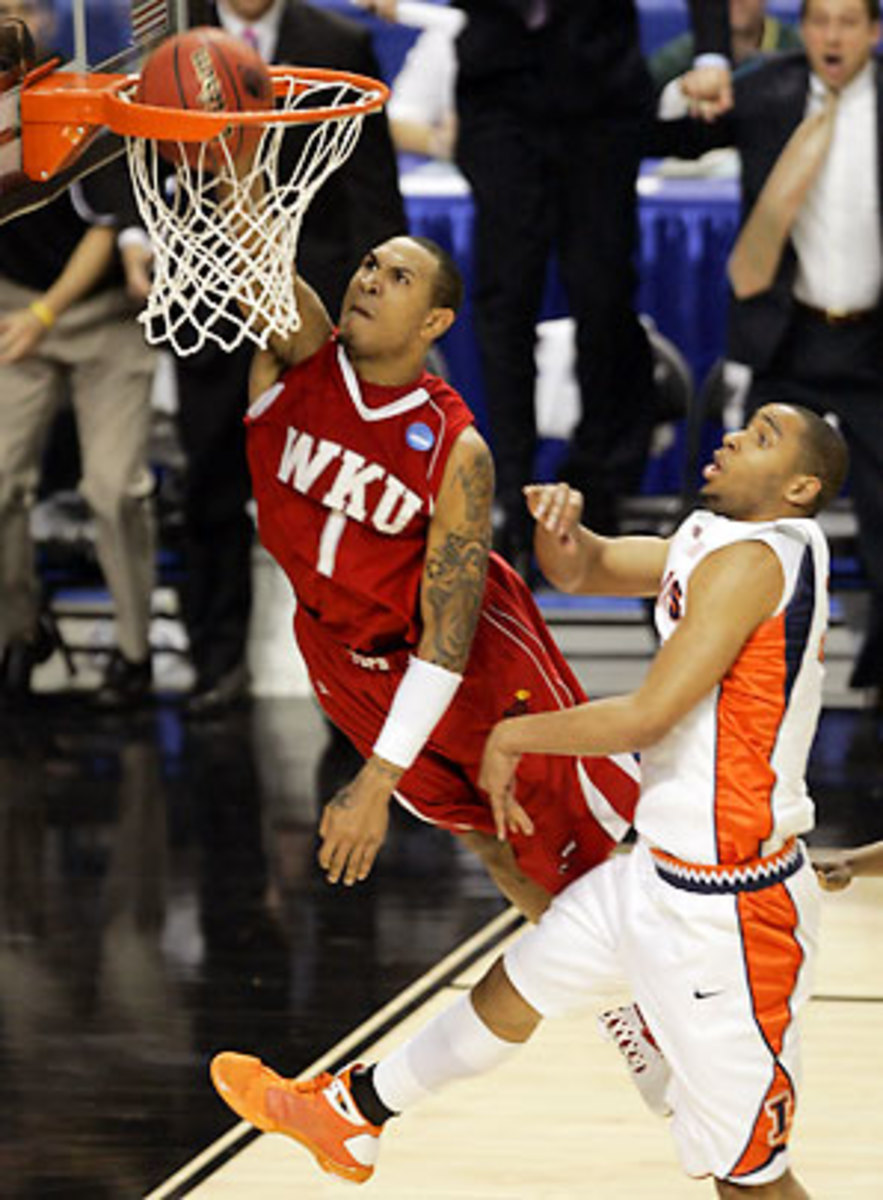Four reasons why NCAA tourney expansion would be horrible
Can you name either of the schools that played in the GMAC Bowl last season?
What about the International Bowl or the EagleBank Bowl or that roll-of-your-tongue granddaddy, the PapaJohns.com Bowl?
Don't feel bad if you can't. There is no prestige in participating in those postseason events, and thus there is little interest in them. It is debatable how much even the alumni of the schools involved care about those games.
I bring this up because the NCAA's plan to expand the NCAA tournament field from 65 to 96 teams would douse college basketball's postseason with a similar shower of meaninglessness. No, the NCAA tournament will not become as irrelevant as those bowl games, but the charm, excitement and memories of the Big Dance will be watered down.
RELATED CONTENT:MANDEL: Exploring the very real possibility of expansion
Some people are against expansion because they believe bigger is never better, but that is an oversimplification. Bigger is sometimes better. The wild card has been a very positive addition in both baseball and the NFL. There were too many good teams missing the playoffs. But when it came to college football, no one believed that the sixth-place team in the Big Ten or the seventh-best team from the Big 12 deserved to play in a bowl. Similarly, no one is clamoring for the ninth-place team from the Big East or the third-place finisher from the Big West to make the NCAA tournament. There is no groundswell advocating change, and yet it is probably closer to happening than people realize.
The NCAA spin masters will tell you that expansion allows more schools to experience the magic of March Madness. But that is a cover. The NCAA can opt out of its television deal with CBS this summer, and expansion could potentially up the price the network would pay. This is about money, and like many decisions motivated purely by financial gain, the NCAA's thinking is shortsighted. The damage to the game would far outweigh the expansion of the NCAA's coffers.
Given the time, I could probably come up with 96 reasons why expansion is a bad move. Instead, here are four very good ones:
Much of the magic of March comes earlier in the month, as teams play themselves in and out of the tournament. The bubble watch wouldn't go away, but it would lose its big names.
In the Big East, watching to see whether UConn or Louisville fails to make the tournament is riveting stuff. But if the field were currently at 96, those teams would be locks to get in, as would others in the middle of the Big East pack like South Florida and Seton Hall. We'd be left debating whether St. John's deserves a bid, a far less meaningful discussion.
Many of the conference tournaments would also lose luster. If Portland knows that win or lose in final of the WCC tournament against Gonzaga it will get a bid, would the players compete with the same abandon? Would the fans care as much?
I doubt it.
The debate over whether one school deserves a bid over another inevitably turns to discussions of RPI, computer rankings and other imperfect indicators. Expanding the field to 96 would only increase the reliance on those tools, as so many teams could stake a claim to a bid.
Imagine a scenario where the second-place team in the SWAC believes it deserves a bid over the fifth-place finisher in the WAC. Now imagine my colleague Seth Davis debating the merits of those two teams on CBS. As entertaining as Seth is and as nice as his hair looks in HD, I would change the channel as fast as I could, and I wouldn't be alone.
The opening weekend is the best of the tournament, with upsets and unforeseen nail-biters. Even a narrow loss by an underdog can go down in history. (Example: No. 1 Georgetown 50, No. 16 Princeton 49 in 1989).
Part of the charm of the first round is that every team is in action. Under the 96-team proposal, 32 teams wouldn't even play an opening-round game. That's a big chunk of fans without a vested interest in the first round.
We would also be treated to some bad basketball, like the matchup between the No. 33 team and No. 96. Using a recent version of Jeff Sagarin's computer rankings, that would pit Wake Forest versus Nebraska, a game between the fifth-placed team in the ACC and the 12th-placed team in the Big 12.
There is no line on a coach's resume more important than the number of times he has taken a team to the NCAA tournament. It can be the difference between a coach keeping his job and losing it. By creating 31 more slots, you water down that achievement and allow underachieving coaches to remain in their jobs.
One example from this season: Notre Dame's Mike Brey. The Irish have rallied to get back on the NCAA tournament bubble with recent victories over Pittsburgh and Georgetown, but that has only underscored how the Irish have underachieved this season. Despite having All-America Luke Harangody (Harangody is now hurt) and a rotation that features seven upperclassmen, the Irish struggled for most of the year because of an unwillingness to play defense and rebound -- faults that, one could argue, could be corrected by good coaching.
Brey deserves to be on the hot seat if this Irish miss the tournament, and yet if this year's field involved 96 teams, Notre Dame would surely be one of them. The perception would be that Brey did a better job than he actually did, and that would give him job security he doesn't deserve.
RELATED CONTENT: Florida's Billy Donovan argues for expansion






